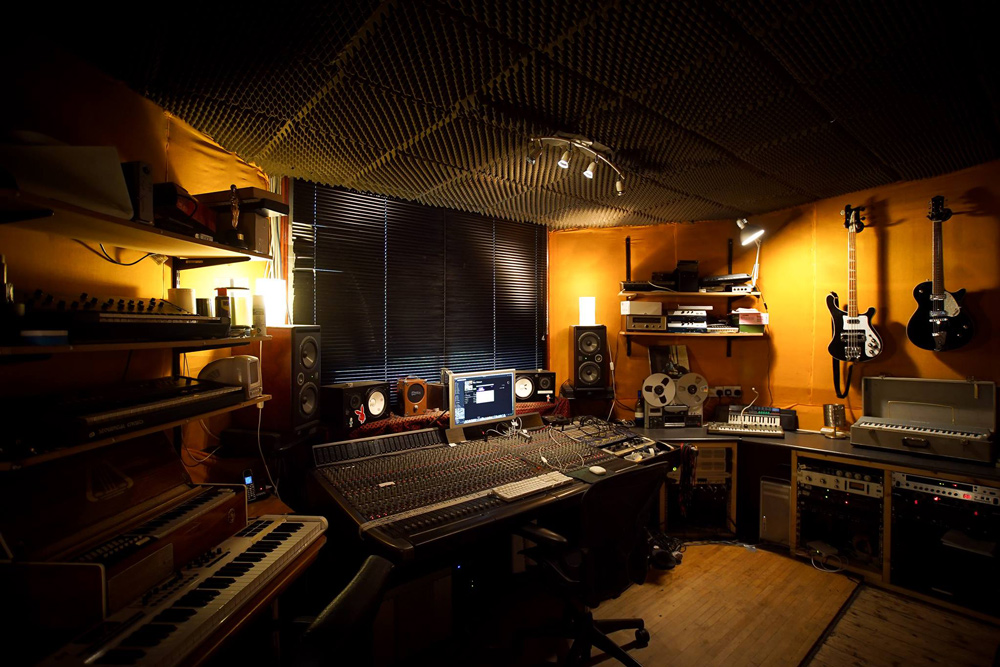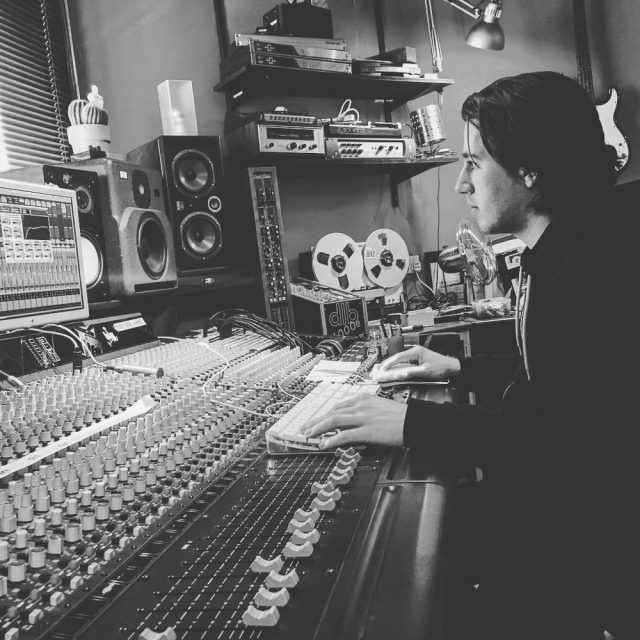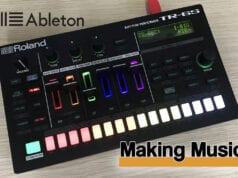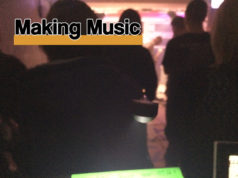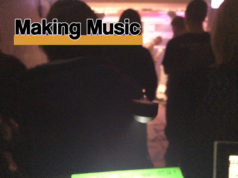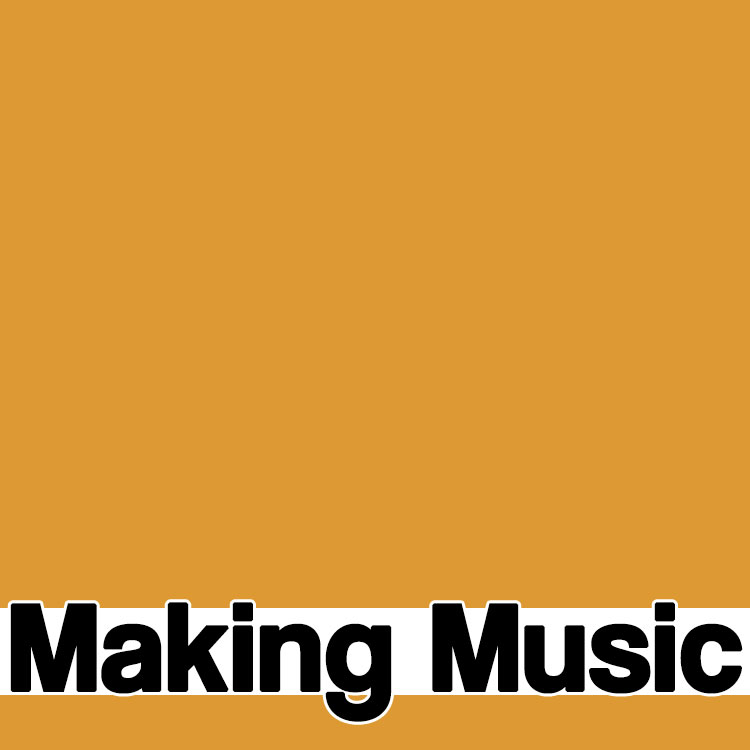Last Updated on March 1, 2017 by Andrew Culture
Nestled away in the leafy splendour of North London’s crouch end lies ‘The Crypt’: a beautiful studio housed inside a converted stone church. It is here that George Perks and Anthony Leung dedicate themselves to their one true love: recording music.
Despite having produced some of this centuries biggest selling records (work by Madness, The Magic Numbers, and Young Guns to name a few) the studio itself doesn’t suffer the brash chrome sheen that many of its rivals pride themselves on. Instead a mix of rough wood, antique rugs and analogue equipment illuminated by soft lamp light give this understated building a rather charming, homely feel.
When I meet George for a chat he mentions that his recent work with Clean Bandit made the Christmas number one. Considering he’s only been working at the studio for just over a year I would say that’s something to shout about. However, my ensuing praise only seems to embarrass him: much like his workspace this modest demeanour tells of a silent confidence that only real accomplishment can bring…
At the age of 24 you find yourself working as an engineer and producer for one of the most respected studios in London. By most peoples standards that is quite an achievement. Talk me through how you got to this point and feel free to lend some supportive words to any aspiring bedroom producers:
I think studying is really important. I studied music at A-level and Music Production and Technology at degree level. That was great…to learn all the technicalities of the process as well as the classical training. These skills acted as a superb foundation but I guess what really started me off was an internship at Punch Studios in Ipswich. I did it alongside my degree for three years and was able to put into practice everything I was learning whilst being able to discover hands on how to make recordings as well as how to actually work with people. That is actually one of the most crucial aspects of recording an artist – collaboration and patience – I learned that on the job.
That internship really was essential to my career….eventually I turned the internship at Punch into a proper paid job, which allowed me to use my free time traveling up to London to sit in on sessions at bigger studios. Thats how I ended up getting my job at The Church/The Crypt Studios.
So you studied and worked in unison. Did you dabble in any home recording as well?
Yeah I did! So alongside my degree…well alongside college actually…I had a laptop and a handful of microphones. Nothing special. I was going to my friends houses and rehearsal studios, setting up and recording live in the room…a few songs over a couple of hours. When I started getting into studios I kind of moved most of my stuff there but I still wrote music at home…still recorded vocals at home. I had a great little Pro-Tools set up for that.
Did you find the mixture of academic, professional and recreational work gave you a better perspective on the recording process as a whole?
Definitely. The stuff I was doing at home…that was the stuff I could experiment with. I had the freedom to keep going all hours of the day and night; when the studios close you can go home and really get stuck into playing with ideas. There was a lot of trial and error but it all helps you develop.
What sort of set up would you recommend for a fairly decent home recording?
It really does depend what you are recording…I think the most important starting point is a good pair of speakers; you absolutely need to be able to properly hear what you are recording. A fairly cheap pair of monitor speakers will do the trick, or for the same budget you could get a pretty decent pair of headphones. I would personally recommend entry level speakers by KRK and headphones by Senheiser or Beyerdynamic. They are really clear and that is so crucial…especially if you are recording in a smaller room at home or have neighbours.
Dynamically a room makes a huge difference to the recording process but as you mentioned earlier people might be restricted by smaller spaces. Are there any methods you could suggest for an effective home recording where this might be an issue?
If you have an interface that takes instrument in…like a DI I guess…you can record instruments straight into the computer and then play them back through guitar amps in a bigger space and record that back. You could spend as long as you wanted at home writing and recording directly into the computer, then just take it to a studio, gig venue, a church…anywhere with an ambience you like…set up an amp and play the parts back through its speaker and record the sound. It can be an incredibly effective method of dynamically changing the entire sound of a flat home recording. Drums are way more difficult; i’ve found over the years that you really do need a good kit and the right space. There are actually quite a lot of relitively realistic software drums out there that I have personally used in my home recordings: Easy Drummer is a great one, Native Instruments works…Studio Drummer is actually really good. It has a full multi-mic recorded kit sound that I use for making demos at home.

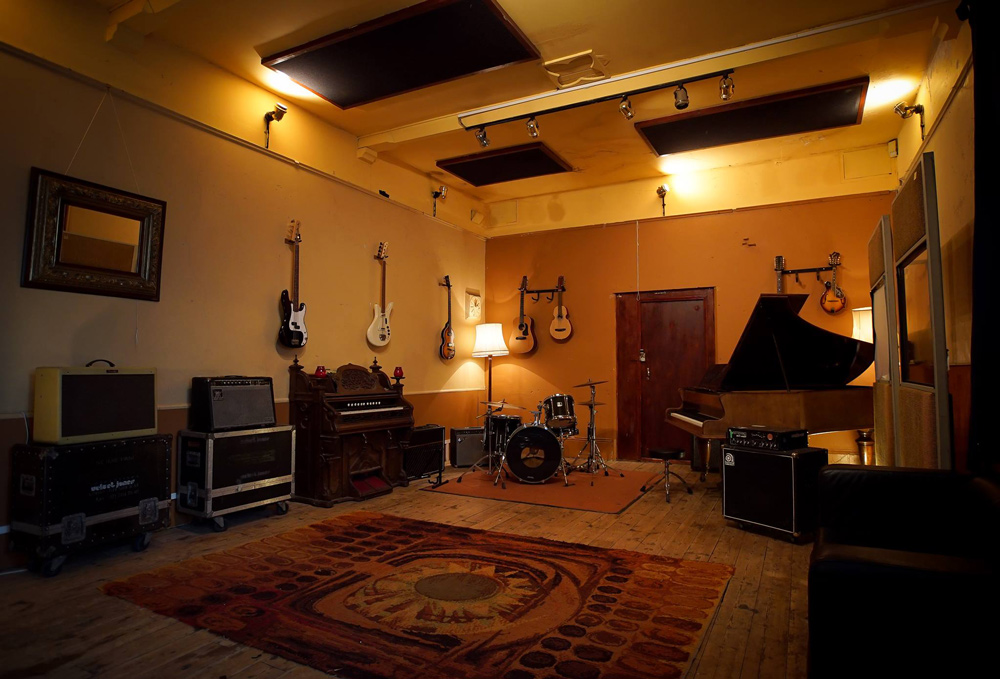
So there isn’t a ton you can do about capturing an actual kit if your space doesn’t allow for it?
Well it really depends on what size room you have. If you are recording somewhere like a bedroom…somewhere small…you usually get a really dry drum sound. That is actually really desirable for hip-hop. If the fuller room vibe is what you really want you could always just add a bit of reverb to the underside of the snare drum, that can genuinely make it seem like you are in a larger space, but ultimately if you do want a big roomy drum sound theres no escaping the need for a fitting environment.
A couple of decades ago the only way most musicians could lay down a track or album was in a legitimate recording studio. As home production advances in quality and affordability do you think the traditional studio space is under threat?
Its undeniable. There has been a big shift in the last 20 years in how people make a record. If you go back in time record labels had these huge budgets so bands would be able to go into the studio for months to write and record…its what you kind of had to do because the equipment was so expensive and just so big they had to be housed in a legitimate space and worked by professionals.
Now you can buy a laptop, a few plug ins and instantly you own a fairly decent studio. You can make records at home and a large proportion of leading artists do just that…if you have the right tools and the right mindset you can make a great sounding record that way. I suppose studios still have their place because people still like to go into a nice sounding room, using decent mic pre-amps, good microphones…but that certainly isn’t necessary to make a great record. Studios have definitely had to adjust to that. You see artists going to recording studios for a lot less time now. So studios are seeing a quicker turn around for artists. For example, only booking a two day session as opposed to a two week session to record drums. They might then go do everything else at home to cut costs even more.
Unfortunately a lot of the good studios have closed because of that…but its an ever changing industry. Theres less money in general so everyone has had to adapt. As long as you keep up with the times then things work out, but yeah…if you have the vision yourself then home recording can work phenomenally well.
Find out more about George Perks…
Find out more about The Crypt Studio…

